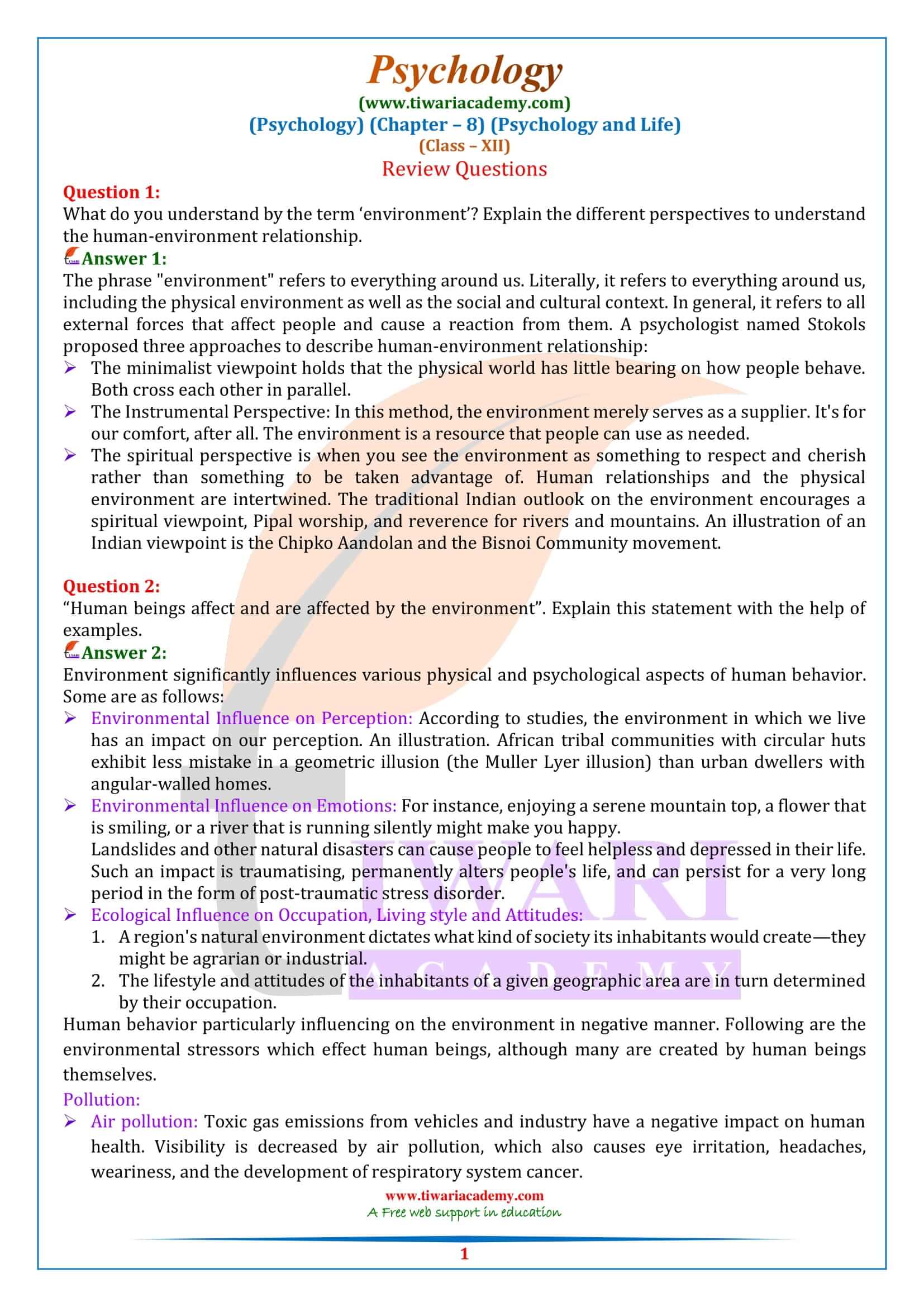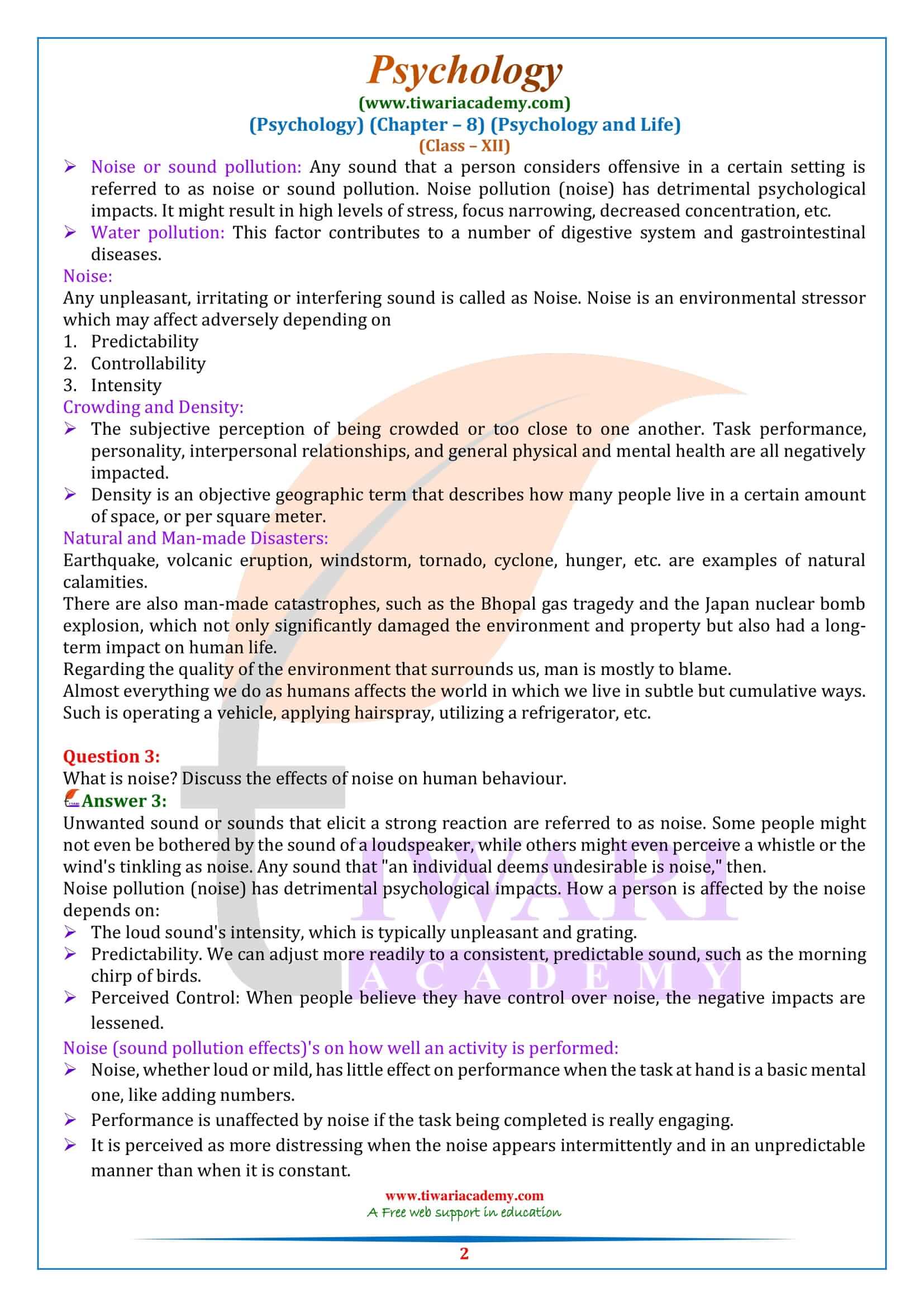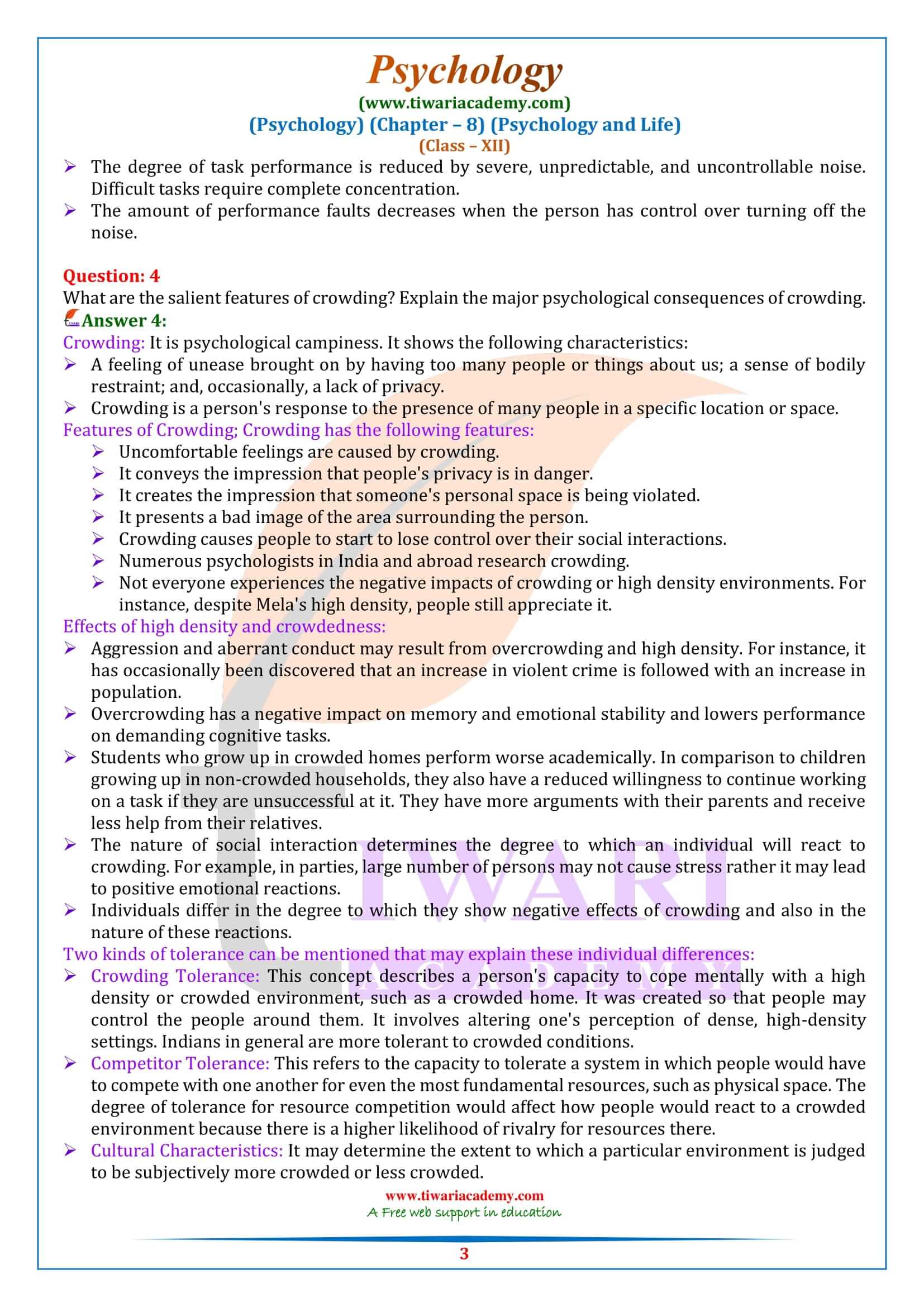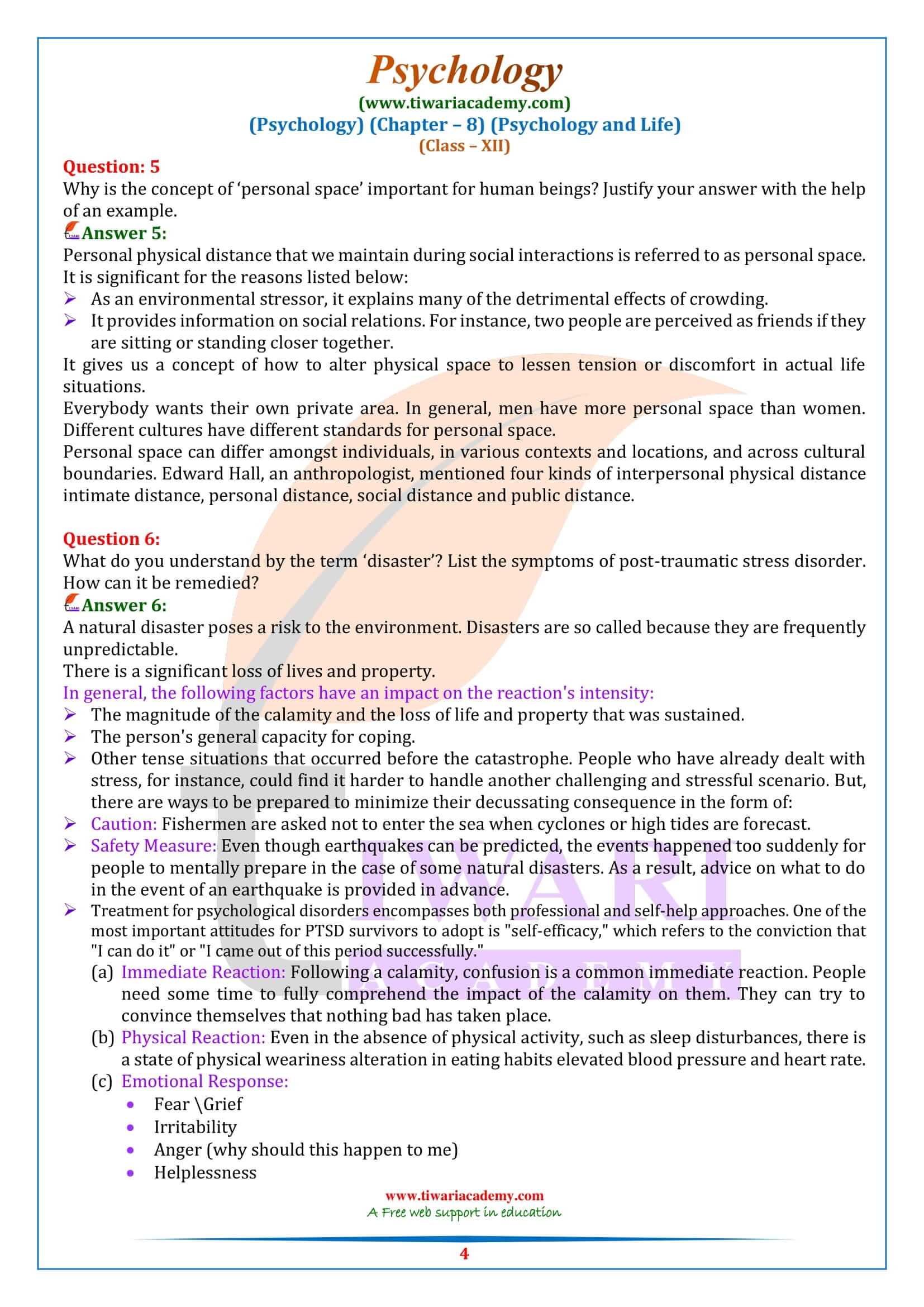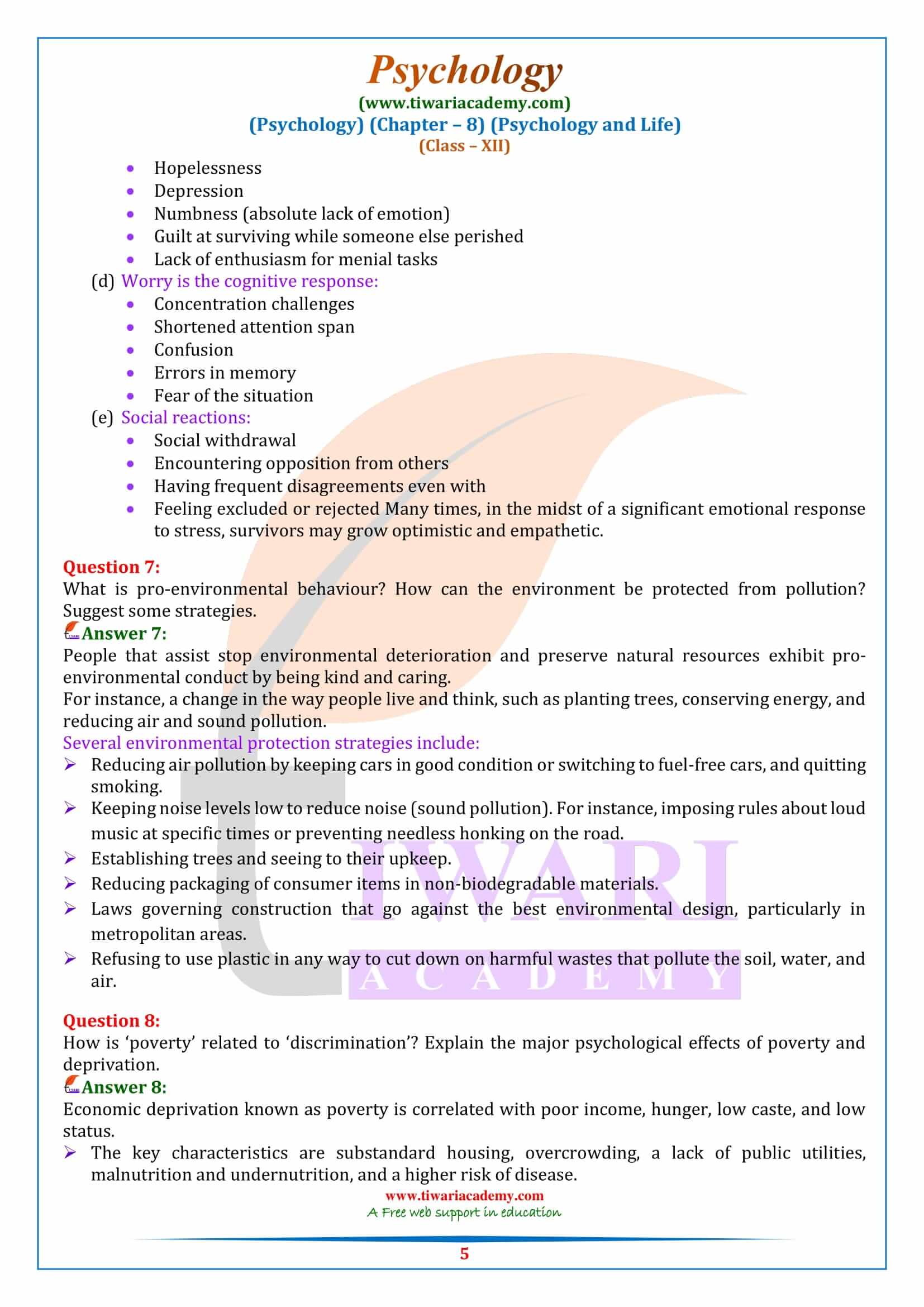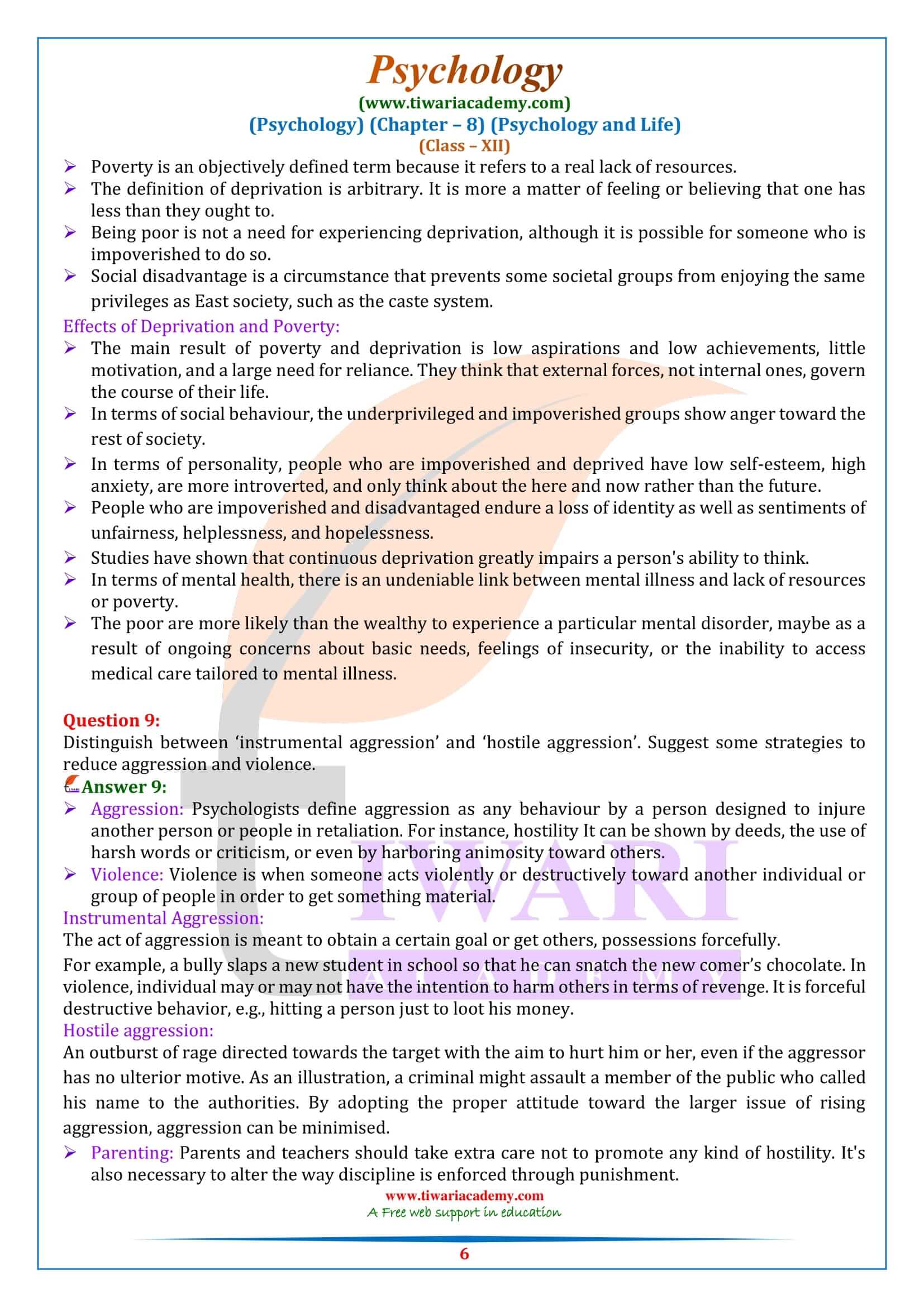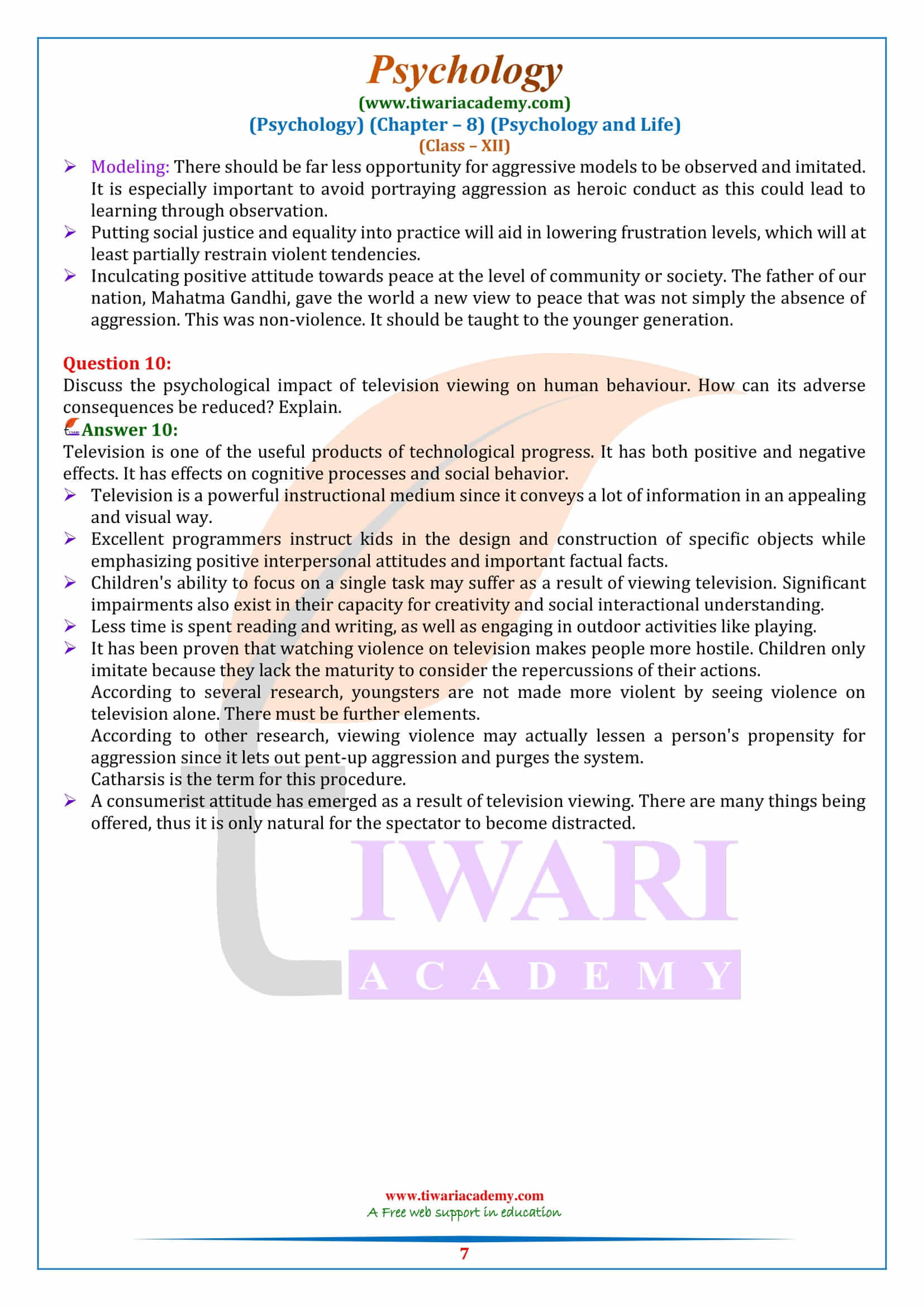NCERT Solutions for Class 12 Psychology Chapter 8 Psychology and Life in English Medium updated for new session 2025-26. Get MCQ and Important Extra Question Answers of class 12 Psychology chapter 8 with simple explanation. MCQs are important for revision and board exam preparation.
NCERT Solutions for Class 12 Psychology Chapter 8
Class 12 Psychology Chapter 8 Psychology and Life Question Answer
What do you understand by the term ‘environment’? Explain the different perspectives to understand the human-environment relationship.
The phrase “environment” refers to everything around us. Literally, it refers to everything around us, including the physical environment as well as the social and cultural context. In general, it refers to all external forces that affect people and cause a reaction from them. A psychologist named Stokols proposed three approaches to describe human-environment relationship:
The minimalist viewpoint holds that the physical world has little bearing on how people behave. Both cross each other in parallel.
The Instrumental Perspective: In this method, the environment merely serves as a supplier. It’s for our comfort, after all. The environment is a resource that people can use as needed.
The spiritual perspective is when you see the environment as something to respect and cherish rather than something to be taken advantage of. Human relationships and the physical environment are intertwined. The traditional Indian outlook on the environment encourages a spiritual viewpoint, Pipal worship, and reverence for rivers and mountains. An illustration of an Indian viewpoint is the Chipko Aandolan and the Bisnoi Community movement.
What is noise? Discuss the effects of noise on human behaviour.
Unwanted sound or sounds that elicit a strong reaction are referred to as noise. Some people might not even be bothered by the sound of a loudspeaker, while others might even perceive a whistle or the wind’s tinkling as noise. Any sound that “an individual deems undesirable is noise,” then.
Noise pollution (noise) has detrimental psychological impacts. How a person is affected by the noise depends on:
- The loud sound’s intensity, which is typically unpleasant and grating.
- Predictability. We can adjust more readily to a consistent, predictable sound, such as the morning chirp of birds.
- Perceived Control: When people believe they have control over noise, the negative impacts are lessened.
Noise (sound pollution effects)’s on how well an activity is performed:
- Noise, whether loud or mild, has little effect on performance when the task at hand is a basic mental one, like adding numbers.
- Performance is unaffected by noise if the task being completed is really engaging.
- It is perceived as more distressing when the noise appears intermittently and in an unpredictable manner than when it is constant.
- The degree of task performance is reduced by severe, unpredictable, and uncontrollable noise. Difficult tasks require complete concentration.
- The amount of performance faults decreases when the person has control over turning off the noise.
Why is the concept of ‘personal space’ important for human beings? Justify your answer with the help of an example.
Personal physical distance that we maintain during social interactions is referred to as personal space.
It is significant for the reasons listed below:
- As an environmental stressor, it explains many of the detrimental effects of crowding.
- It provides information on social relations. For instance, two people are perceived as friends if they are sitting or standing closer together.
It gives us a concept of how to alter physical space to lessen tension or discomfort in actual life situations.
Everybody wants their own private area. In general, men have more personal space than women. Different cultures have different standards for personal space.
Personal space can differ amongst individuals, in various contexts and locations, and across cultural boundaries. Edward Hall, an anthropologist, mentioned four kinds of interpersonal physical distance intimate distance, personal distance, social distance and public distance.
What is pro-environmental behaviour? How can the environment be protected from pollution? Suggest some strategies.
People that assist stop environmental deterioration and preserve natural resources exhibit pro-environmental conduct by being kind and caring.
For instance, a change in the way people live and think, such as planting trees, conserving energy, and reducing air and sound pollution.
Several environmental protection strategies include:
Reducing air pollution by keeping cars in good condition or switching to fuel-free cars, and quitting smoking.
Keeping noise levels low to reduce noise (sound pollution). For instance, imposing rules about loud music at specific times or preventing needless honking on the road.
Establishing trees and seeing to their upkeep.
Reducing packaging of consumer items in non-biodegradable materials.
Laws governing construction that go against the best environmental design, particularly in metropolitan areas.
Refusing to use plastic in any way to cut down on harmful wastes that pollute the soil, water, and air.
